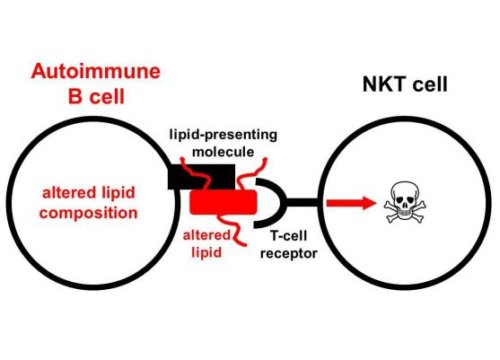
AsianScientist (Sep. 2, 2014) – Scientists have uncovered the crucial role of two signalling molecules involved in the development and production of plasma cells. These discoveries, published in the Proceedings of the National Academy of Sciences of the United States of America and Nature Communications, advance the understanding of plasma cells and antibody response, and may lead to optimised vaccine development and autoimmune disease treatments.
Antibodies secreted by plasma cells are vital to the body’s ability to defend itself against pathogens. Proper maintenance of a pool of plasma cells is also critical for the establishment of lifelong immunity elicited by vaccination. On the other hand, dysregulation of plasma cell production and maintenance could lead to autoimmune diseases and multiple myeloma.
In the first study, researchers from Agency for Science, Technology and Research’s (A*STAR) Bioprocessing Technology Institute found that cell receptor-mediated calcium signalling, which typically controls a wide range of cellular processes, inhibits the expression of the cell membrane proteins essential for plasma cell formation.
These membrane proteins include PDL1 and PDL2, ligands of the programmed cell death 1 receptor, which are a common immunotherapy targets. DOK3, a negative regulator of calcium signalling, was observed to promote the expression of PDL1 and PDL2. This finding suggests that DOK3 is an indirect regulator of plasma cell differentiation.
In the second study, the scientists discovered that SHP1, a protein known to participate in autoummune disease prevention, is important to the long-term survival of plasma cells. Plasma cells, which are generated in the spleen, must usually migrate to bone marrow to ensure long-term survival. In the absence of SH1P, plasma cells were incapable of doing so. Instead, the cells exhibited aberrant activation of α4β1 integrins. Interruption of this interaction corrected this defect in immunized mice.
The study authors note that targeting SHP1 might be a strategy to treat multiple myeloma where the accumulation of cancerous plasma cells in the bone marrow survival niches is undesirable. Further, they hope the discovery of these new targets for modulating the antibody response allows the development of novel therapies and vaccines for autoimmune diseases and cancer.
Professor Lam Kong Peng, Executive Director of BTI, said, “These findings allow better understanding of plasma cells and their role in the immune system. The identification of these targets not only paves the way for development of therapeutics for those with autoimmune diseases and multiple myeloma, but also impacts the development of immunological agents for combating infections.”
The articles can be found at:
Ou et al. (2014) Adaptor protein DOK3 promotes plasma cell differentiation by regulating the expression of programmed cell death 1 ligands
Li et al. (2014) Shp1 signalling is required to establish the long-lived bone marrow plasma cell pool
——
Source: A*STAR.
Disclaimer: This article does not necessarily reflect the views of AsianScientist or its staff.












